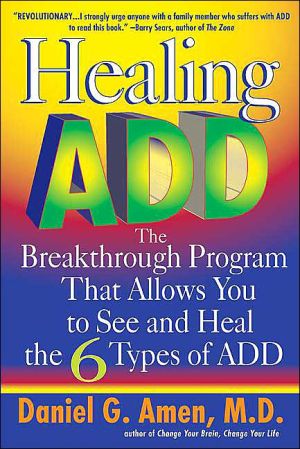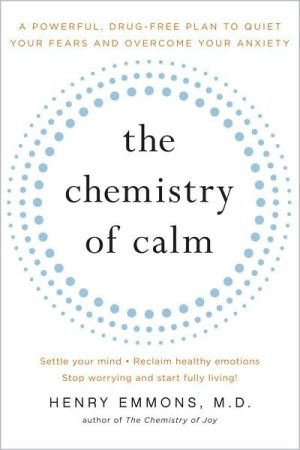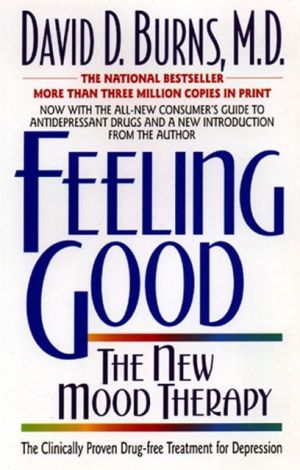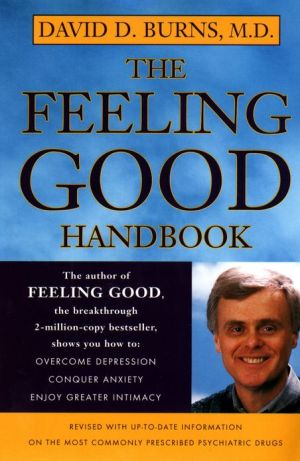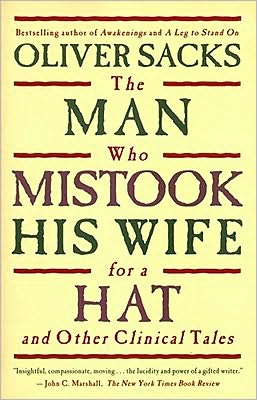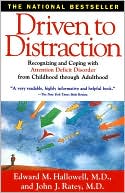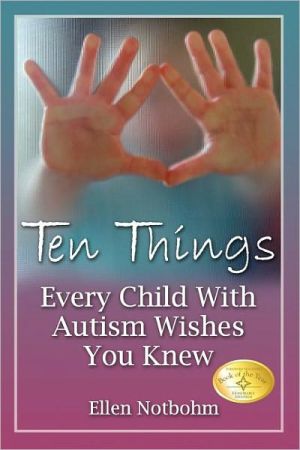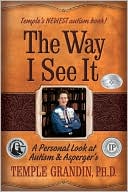Healing ADD: The Breakthrough Program That Allows You to See and Heal the Six Types of Attention Deficit Disorder
Attention Deficit Disorder (ADD) is a national health crisis that continues to grow—yet it remains one of the most misunderstood and incorrectly treated illnesses today. Now, using breakthrough diagnostic techniques, Dr. Daniel Amen has discovered that there are six distinct types of ADD, each requiring a different treatment.\ \ With recommendations for prescription drugs, nutraceutical therapy, cognitive reprogramming, parenting and educational strategies, biofeedback, self-hypnosis...
Search in google:
Using breakthrough diagnostic techniques, Dr. Daniel Amen has discovered that there are six distinct types of ADD (Attention Deficit Disorder), each requiring a different treatment. With recommendations for prescription drugs, nutraceutical therapy, cognitive reprogramming, parenting and educational strategies, biofeedback, self-hypnosis and more, this revolutionary approach can lead sufferers of ADD to a normal, fully-functional life.
Chapter 1ADD in the Real World Stories Through the Life Cycle ADD may not make someone look different, but you can see it plainly if you know what to look for. The following case histories demonstrate what ADD "looks like" throughout the life cycle. These stories are real. The names and details have been altered, as they have been throughout this book, to protect the confidentiality of my patients. Children Billy Billy, age 9, had trouble in school since starting kindergarten. The teachers seemed to call his parents at least once a month to complain about Billy's behavior. He frequently interrupted others, they said, and he had problems with distractibility, a short attention span, and hyperactivity, and he couldn't stay in his seat. Again and again Billy was told that he was impulsive and did things without thinking. The teachers reported that he got into many fights with the other children, because he "seemed to take things the wrong way." Additionally, Billy's work was sloppy, he often forgot or lost assignments, and his desk was an absolute disorganized mess! His parents knew most of these problems firsthand. Billy was a difficult child to parent. He said things without thinking, often argued when told to do something, and became angry with little provocation. Homework was always a struggle with Billy. Work that typically took their other kids thirty minutes to finish took Billy three or four hours. While doing his homework, he was up every five minutes looking for food or bothering his older sister. In the first three years of school, Billy was labeled a willful, defiant child. He was often sad and frustrated, and he had a tendency to blame others for his problems. His parents didn't know what to do. They had known of the problems for some time, and they alternated between blaming Billy, blaming the "lousy" school, and blaming themselves. When Billy was 5 years old, his mother took him to the pediatrician because of his high activity level and difficult nature. While she was talking to the doctor, however, Billy sat perfectly still and he was very polite and attentive to the doctor. The doctor told Billy's mother that there was nothing the matter with the boy and that she should take parenting classes. The mother left the pediatrician's office in tears because he confirmed her worst fear: She was a defective parent who caused Billy's problems. Despite the parenting classes, the problems continued. When he was in third grade, Billy came to my office for an evaluation. It was clear from watching him that he had difficulty concentrating and was distractible, active, and impulsive. Billy had Classic ADD: He was inattentive, distractible, disorganized, hyperactive, and impulsive. I placed him on medication, talked with the school on effective classroom management techniques, and had his parents attend a parenting group designed for dealing with difficult children. I also taught Billy some specialized biofeedback techniques. Six months after ADD treatment, Billy was a different child. He was less impulsive, his attention span had increased, and he appeared calmer. Even his grades had improved. Four years later he likes himself, is effective at school, and has healthy relationships at home and with friends. Shortly after I placed Billy on medication, I asked him about the time in the pediatrician's office when he had been 5 years old. I asked him why he had been able to sit so still during the interview. He told me that he thought the doctor was going to do brain surgery on him. You would sit still, too, if you thought someone was going to open up your skull! Melissa Melissa, age 5, had been affectionately labeled the "pink tornado." Ever since she could walk, she ran. Everywhere. Her parents were always on edge, wondering what she was going to do next. She climbed. She swung on cupboard doors. She ran into the street as soon as her mother's back was turned. She was her own "little wrecking crew" when she went shopping with her mom or dad. Her parents brought her to see me after she was nearly run down in a parking lot after she opened the car door and ran into a store. Her parents also reported that Melissa was moody, irritable, oppositional, extremely talkative, and able to throw monumental tantrums. Her mother complained that she could not take Melissa anywhere without a commotion. In restaurants she wiggled, yelled out, and screamed if she didn't get her way. Other adults would stare at Melissa's parents with a look that said, "Why don't you beat that bratty child into submission!" Lord knows they spanked this child more than they thought any child should be spanked. That didn't seem to be the answer. In fact, the more they spanked Melissa, the more she would act up-almost as if she was driven for more punishment. Melissa had a very short attention span, never playing with anything for longer than a few minutes. She could tear her room apart in a moment. Her parents actually put a lock on the outside of her room to keep her out when her parents were not supervising her. Melissa tore up my office too. She climbed up my bookcases, messed up the papers on my desk, and screamed at her parents when they asked her to settle down. It seemed that she invited her parents to spank her in front of me. Melissa had never been abused and no obvious emotional trauma was evident in her life. The parents, who cared for each other very much, wondered how long they could last as a family. Melissa had a severe case of "Ring of Fire" ADD. It probably had genetic roots. Her mother's father was an alcoholic and her uncle on her father's side was in jail for assault. Melissa also had an aunt with bipolar disorder (manic depression). She became more active and aggressive on Ritalin. Dexedrine did the same thing to her. With the atypical response to medication, I ordered a brain SPECT study, which showed multiple overactive areas across the cortical surface of her brain. With this information, I placed her on Depakote-an antiseizure medication often helpful for cases like this-and a higher protein diet. Within several weeks she became more settled, more cooperative, more playful, more attentive, and much more relaxed. Her mother was amazed at how little she was yelling at Melissa now. The parents also took a parenting class, which helped them gain the skills necessary to deal with a very challenging child. Teenagers Louanne Louanne's mother came to one of my lectures. When I described ADD, she started to cry, knowing that the symptoms I had listed fit her daughter's life. Shortly thereafter, she brought Louanne to see me. Louanne had a short attention span, was easily distracted, and often did not finish her assignments. She had low self-esteem and she talked incessantly without saying very much of substance. Louanne complained of low energy and no motivation. She had always wanted to be a music teacher, but she began to believe that she couldn't do the work to succeed in college. She thought that she was slow and different from her friends. She sat in my office, already demoralized at age 16. Louanne had Inattentive ADD, a common but rarely diagnosed condition in females. I started her on Dexedrine, had her increase her exercise and protein intake, and worked with her on self-esteem and school strategies. Within a month of starting treatment, Louanne dramatically improved. I remember her coming into my office so tickled that she could finally get her work done. In the semester after she started treatment, her grade point average went from a 2.1 to a 3.0. She was especially pleased that she could compete with her friends at school and no longer thought of herself as "dumber than them." The demoralized girl I had first met was developing into a hopeful and forward-looking woman. Her mother commented that she was more thoughtful when she spoke and voiced the secret feelings of many parents: "Just knowing that this is a medical disorder, with signs, symptoms, and treatment, has given us immense hope for Louanne." Gregg When Gregg first came to see me at the age of 14, he was a wreck. He had just been expelled from his third school for fighting and breaking the rules. He told off teachers for fun and picked fights with other kids on the school grounds. He also never did his homework and he talked about dropping out of school, saying he didn't need an education to take care of himself. At home he was defiant, restless, messy, and disobedient. He teased his younger brother and sister without mercy. Anytime his parents would speak to him, he'd get defensive and challenging. His parents were at their wits' end, and their next step was a residential treatment center. When I first saw him he was a "turned off" teenager with averted eyes and nothing much to say. He told me that he didn't want to be sent away but that he wasn't able to get along with his family. He found school very hard and thought he was stupid. When I did a test of verbal intelligence on him, however, his demeanor started to change. He liked the test and seemed challenged by it. His verbal IQ score was 142, in the superior range and far from stupid. Looking back in Gregg's history, it was clear he had had symptoms of ADD his whole life. He was a fidgety kid with awful handwriting and a messy desk. His desk at school was always a mess. He had trouble waiting his turn in school, and endured being called stupid because he had trouble learning. Due to the severity of his problems, and the potential departure of Gregg from the family, I ordered a brain SPECT study to evaluate the functioning of his brain. The study showed that he had two problems. When Gregg tried to concentrate, the front part of his brain, which should increase in activity, actually decreased. This is the part of the brain that controls attention span, judgment, impulse control, and critical thinking. His brain study also showed decreased activity in his left temporal lobe, which, when abnormal, often causes problems with violent or aggressive behavior. I diagnosed Gregg with Temporal Lobe ADD. As I explained these findings to Gregg, he became visibly relieved. "You mean," he said, "the harder I try to concentrate, the worse it gets for me." He responded very nicely to a combination of medication (Ritalin and Carbatrol) to correct the problems in his frontal and temporal lobes. In addition, I placed him on vitamin E and ginkgo to enhance overall blood flow to his brain and did biofeedback over his left temporal lobe. He was able to remain at home, finish high school, and start college-a far cry from the stupid troublemaker he and everyone else thought he was. Adults Brett Brett, 27, had just been fired from his fourth job in a year. He blamed his bosses for expecting too much of him, but it was the same old story. Brett had trouble with details, he was often late to work, he seemed disorganized, and he would miss important deadlines. The end came when he impulsively told off a difficult customer who complained about his attitude. All his life Brett had similar problems, and his mother was tired of bailing him out. He dropped out of school in the eleventh grade, despite having been found to have a high IQ. He was restless, fidgety, impulsive, and had a fleeting attention span. When he was in school, small amounts of homework would take him several hours to complete, even with much nagging and yelling from his mother. Brett had mastered the art of getting people angry at him, and it seemed to others that he intentionally stirred things up. Brett had had lifelong symptoms of Classic ADD that had gone unnoticed, even though Brett had been tested on three separate occasions. With appropriate treatment at last, his life made a dramatic turnaround. He returned to school, finished a technical degree in fire-inspection technology, and got a job. He has kept that job for eight years now and feels that he is happier, more focused, and more positive than ever before. Larry Larry, 62, came into therapy because his wife threatened to start divorce proceedings against him if he didn't get help. She complained that he never talked to her, he was unreliable, he never finished projects that he started, and he was very negative. He tended to be moody, tired, and disinterested in sex. As a child, he had mediocre to poor grades in school, and as an adult he went from job to job, complaining of boredom. Larry was referred to me by his marital therapist, and rightly so: Larry had Limbic ADD, with problems that looked like a combination of ADD and depression. Larry's SPECT study showed decreased prefrontal cortex activity and increased activity in the deep limbic system of his brain. Seeing his scan convinced him of the need for treatment. He started on an intense aerobic exercise program, took nutritional supplements, and changed his diet. Within a month his mood was better and he felt more focused. As Larry improved, the couple learned quickly in marital therapy and have been happier than when they were first married. Lindy Lindy, 37, was ready to leave her husband when she first came to see me. "We fight all the time," she said. "Not over big things...but it sure gets old." Lindy also complained of being moody, often irritable, and short with her children. Furthermore, she had trouble getting to sleep and couldn't get out of bed in the morning. In school she was easily distracted, and keeping up with taking notes was almost impossible for her. Lindy's husband had the same complaints of her. She was irritable, she seemed to provoke fights with him or the children, and she had to have things a certain way or she'd become very upset. "Everyone takes off their shoes and socks before they come into the house. And if she sees a strand of hair on the floor, she becomes very upset! She's the only person I've ever met who vacuums the house at 11 P.M. on Friday night." He said that there were sexual problems. When they were making love, she'd often become distracted and lose interest. She'd then tell her husband to "just get it over with." The husband often felt that she was having an affair. Lindy's grandfather, father, and brother had problems with alcohol. She also had a niece and a nephew who were diagnosed with ADD. As I listened to her story, along with the comments from her husband, it was clear that Lindy had Overfocused ADD, where she had trouble shifting her attention. This caused her to have to have things a certain way at home and made it hard for her to take notes in school. She responded nicely to a combination of Ritalin and Prozac, exercise, and increased complex carbohydrates in her diet. After several months she was more relaxed at home, school was much easier for her, she was better with the children, and her relationship with her husband was more positive. —Reprinted Healing ADD: The Breakthrough Program That Allows You to See and Heal the 6 Types of ADD by Daniel G. Amen, M.D. By Permission of G. P. Putnam's Sons, A Member Of Penguin Putnam Inc. Copyright (C) 2001 Daniel G. Amen, M.D. All Rights Reserved. This Excerpt, Or Any Parts Thereof, May Not Be Reproduced in Any Form Without Permission.
IntroductionxvPart IADD Uncovered1.ADD in the Real World: Stories Through the Life Cycle32.The ADD Story113.Looking into the ADD Brain: The Development of SPECT Imaging in Psychiatry404.The Amen Clinic ADD Type Questionnaire67Part IIThe Six ADD Types5.Type 1: Classic ADD776.Type 2: Inattentive ADD937.Type 3: Overfocused ADD1018.Type 4: Temporal Lobe ADD1119.Type 5: Limbic ADD13110.Type 6: "Ring of Fire" ADD14111.Soft Brain, Hard Skull: Head-Trauma-Induced ADD15212.ADD in Families: SPECT Studies Across Generations16113.Self-Medication, Self-Pollution: ADD and Substance Abuse17114.The Games ADD People Play17815.The Impact of ADD on Relationships, Families, School, Work, and Self-Esteem189Part IIIThe Amen Clinic's ADD Brain Enhancement Program16.Enhancing ADD Brain Function: Effective Interventions for Treating ADD Types, Including Diet, Exercise, Medications, Supplements, and Behavioral Interventions20917.Dietary Interventions for ADD Types22318.Medication for ADD Types23319.Supplement Strategies for ADD Types25320.Neurofeedback Strategies for ADD Types265Part IVOptimizing the ADD Life21.Parenting and Family Strategies27722.School Strategies29923.Sleep Strategies for Getting Up and Going to Bed31224.Killing ADD ANTs: Thinking Skills for Overcoming Past Trauma, Fear, and Failure31925.Focused Breathing: The Immediate ADD Salve33126.ADD Coaching33427.Self-Hypnotic Reprogramming for Success35328.What to Do When ADD Treatment Doesn't Work37229.How to Find the Best Help: A Resource Guide380Index413About the Author424
\ From Barnes & NobleEvery parent of a child diagnosed with ADD (attention deficit disorder) knows the pain and frustration of attempting to apply one-size-fits-all solutions to their kid's specific condition. Dr. Daniel G. Amen, an internationally recognized authority on the disorder, maintains that there are at least half a dozen distinct types of ADD, each requiring a different treatment. This moderate, detailed book offers recommendations about therapy, prescription drugs, and reprogramming techniques for ADD people of all ages.\ \
